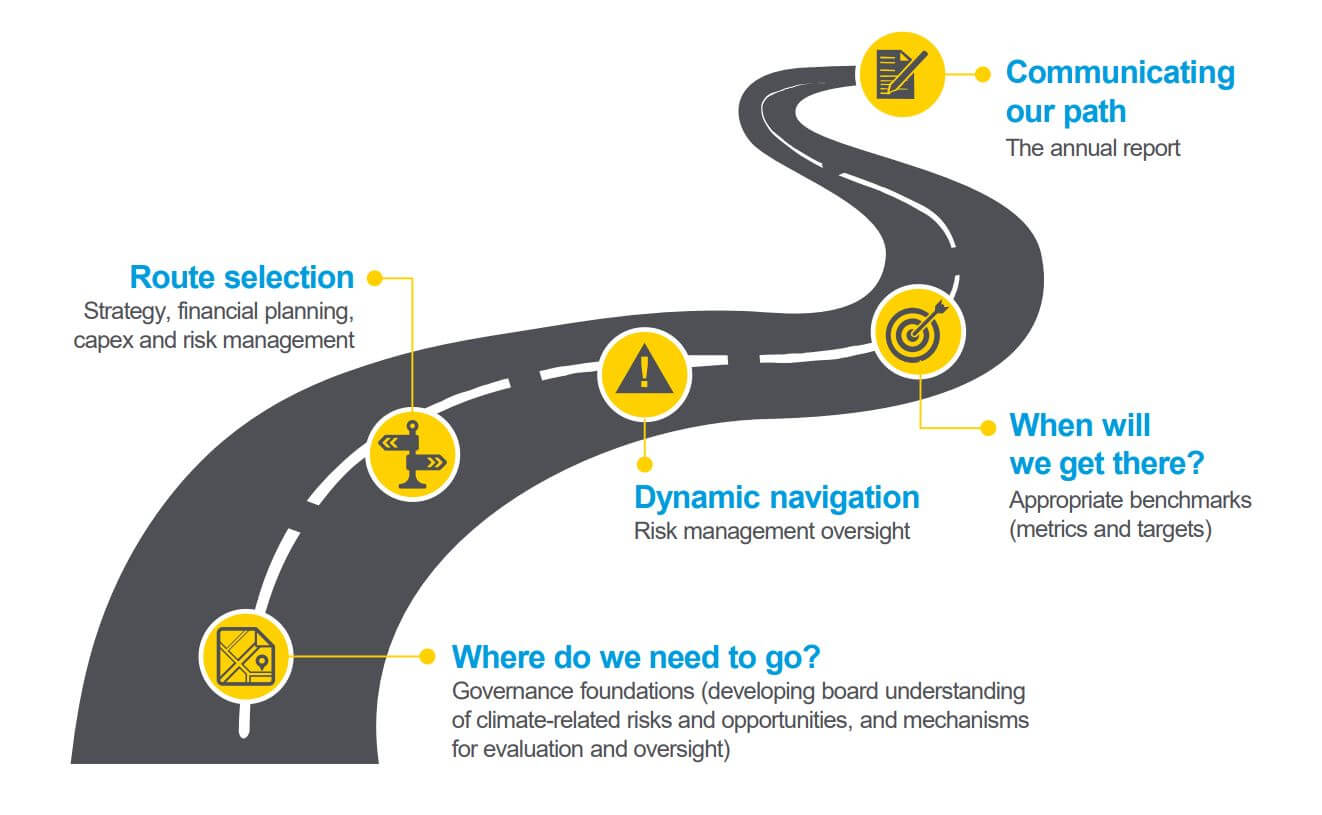A step-change in financial disclosure expectations
In late 2015, in the shadow of the Paris Agreement and amid increasing concerns of investors, regulators and other stakeholders about the financial implications of climate change, the G20 tasked its Financial Stability Board (FSB) to review how the financial sector could take account of climate-related issues.
The FSB commissioned an industry-led taskforce: the Taskforce on Climate-related Financial Disclosures (TCFD), chaired by Michael Bloomberg. The TCFD was charged with developing a voluntary framework for companies to disclose the material impacts of climate change on their financial performance and prospects, in a consistent form, that would be decision useful for investors, lenders and insurance underwriters. The TCFD released its final Recommendations in June 2017. Whilst ‘voluntary', the TCFD recommendations are emerging as the key benchmark against which to assess a company's strategic approach to the climate change mega-trend. However, many directors (and the executives on which they rely) are ill prepared to navigate this step-change in governance and disclosure expectations.
Reporting and assurance
The board's approval of financial statements, and the accompanying narrative directors' report, is a primary source of assurance to shareholders. In turn, directors must exercise due care and diligence in assuring that the company's disclosures present a true, fair and balanced view of financial performance and prospects, and that they have been prepared on the basis of a robust process. This requires the board to both understand key risk areas, and to satisfy themselves that effective controls are in place.
This primer is intended to assist boards and their committees embarking on the climate-related financial risk reporting journey. It proposes key questions relevant to the assurance of a corporation's reporting on climate-related financial issues – and to the robust processes of governance and oversight on which those disclosures must be based. Whilst recognising that the TCFD provides a framework for reporting rather than board governance per se, the primer seeks to place each query in context by indicating the category(s) of TCFD recommendation to which they relate.

Of course, the actions required to discharge a director's obligations to govern climate-related risks (and opportunities) with due care and diligence, and to ensure that corporate reports present a true and fair view of financial performance and prospects, will be unique in each case. In particular, additional interrogation and assurance may be warranted in sectors with significant climate-related exposures (such as financial services, resources, energy, infrastructure, materials & manufacturing, transportation, agribusiness and real estate, amongst others).
The content of this article is intended to provide a general guide to the subject matter. Specialist advice should be sought about your specific circumstances.
